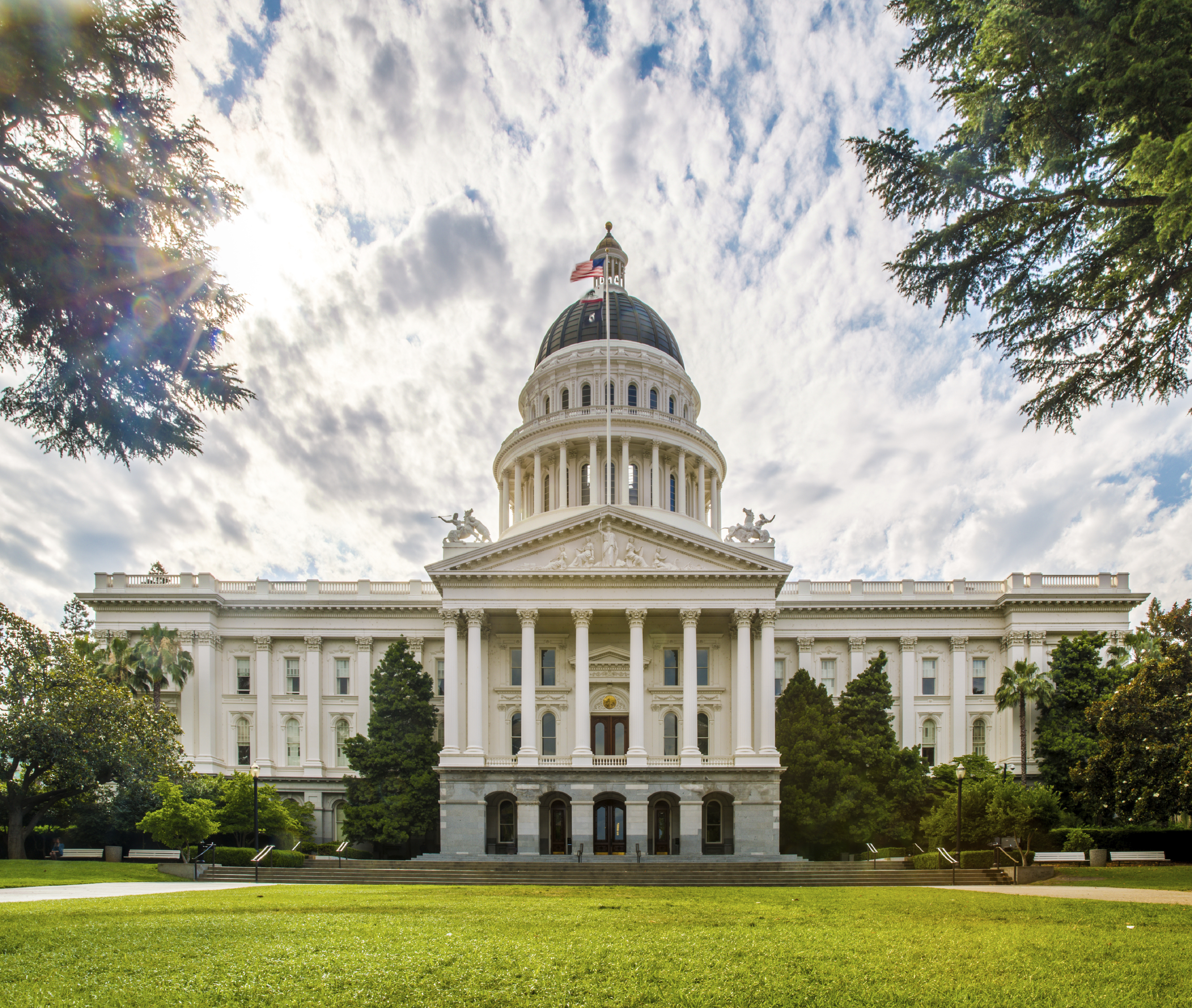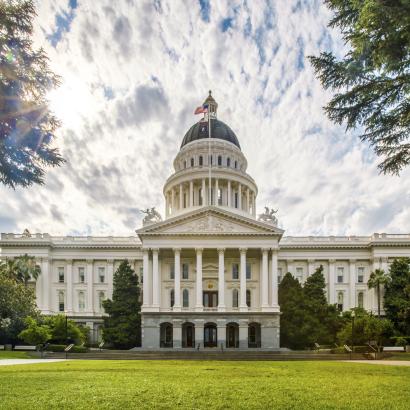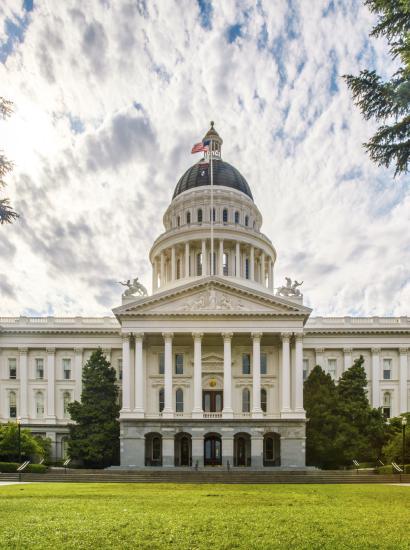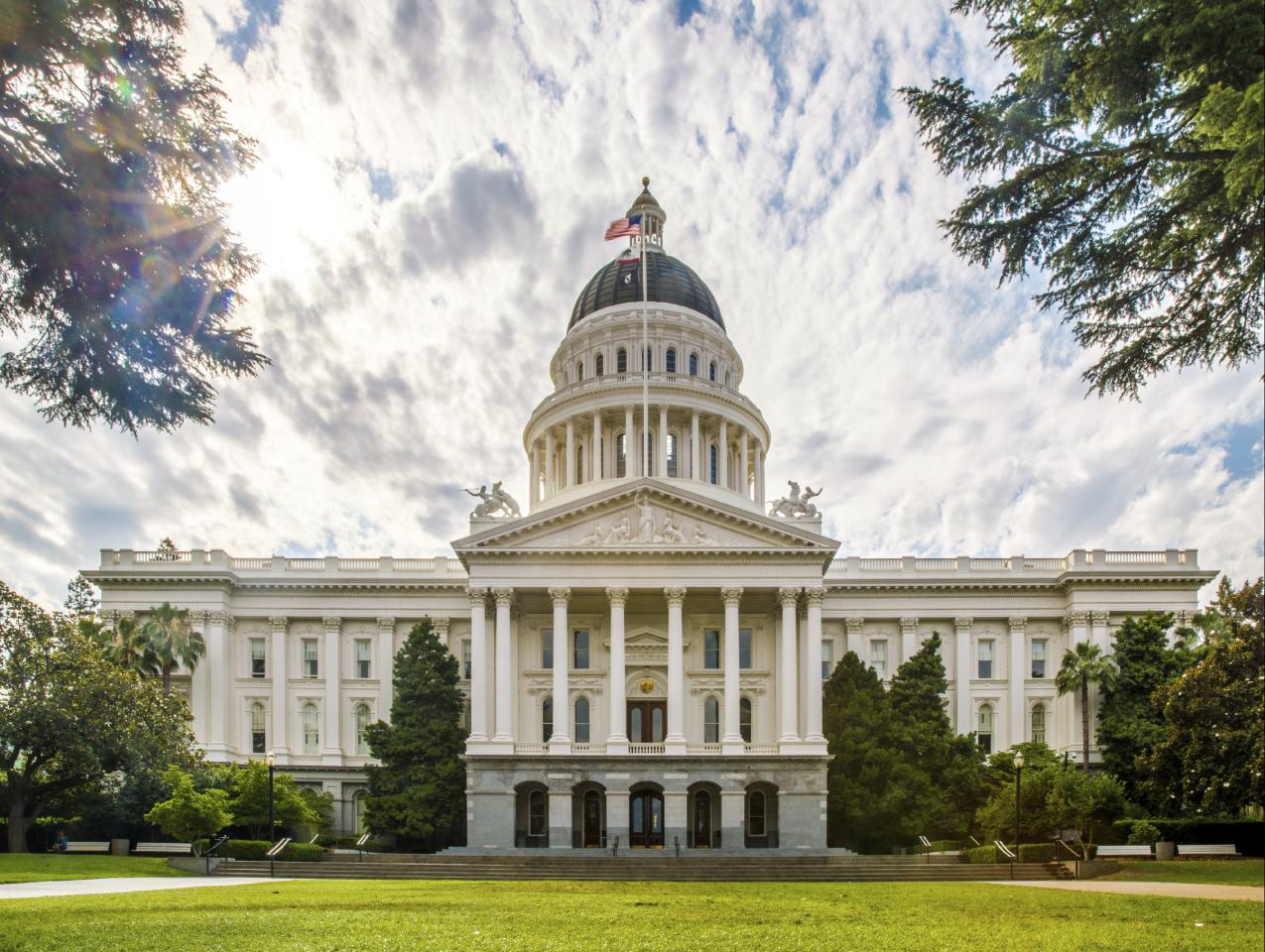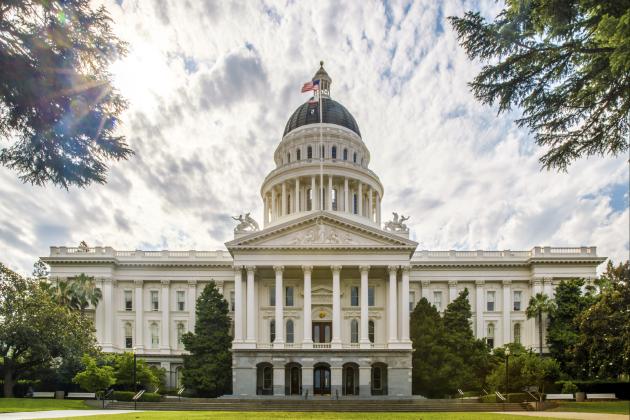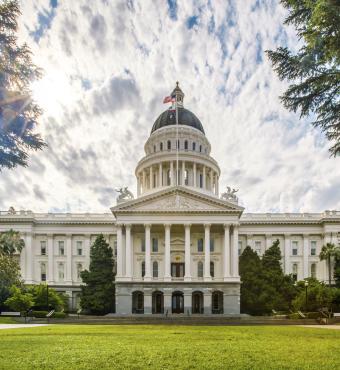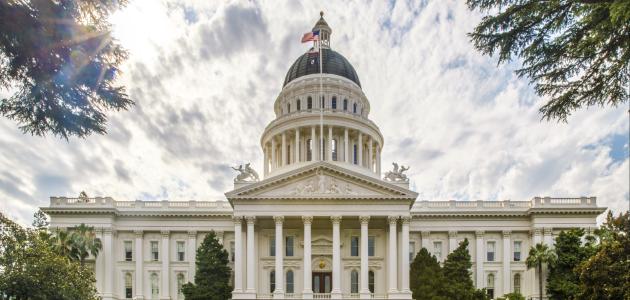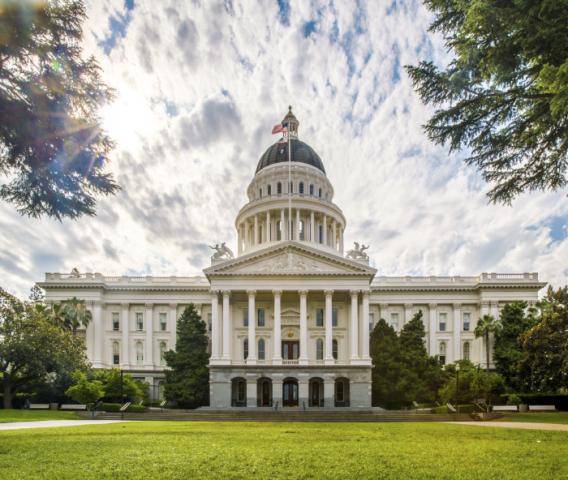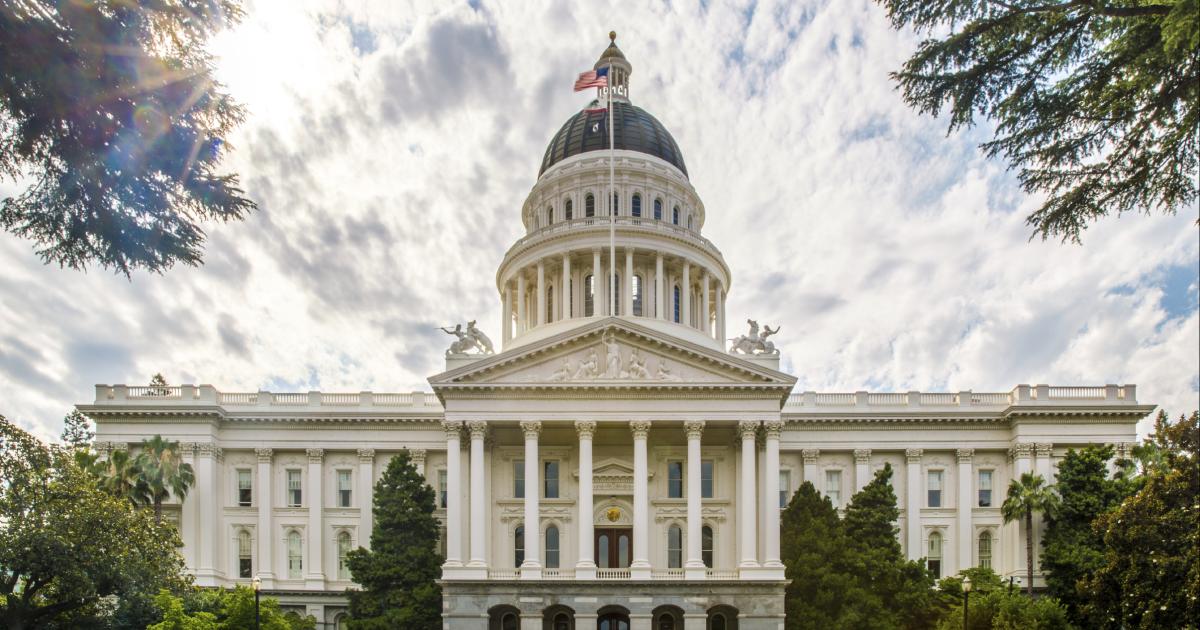- Politics, Institutions, and Public Opinion
- Campaigns & Elections
- The Presidency
- State & Local
- California
Maybe a recent binge-watch is to blame, but l wonder: Why isn’t Reese Witherspoon campaigning for California governor Gavin Newsom, the subject of next week’s recall election here in the Golden State?
The argument for Ms. Witherspoon on the stump?
For openers, as you can see in these YouGov numbers, she surveys well with Baby Boomers, Gen Xers, and Millennials—the latter demographic a concern to a Newsom campaign worried that younger, progressive-minded Californians won’t sufficiently participate in the recall.
And there’s Ms. Witherspoon’s role on The Morning Show, an Apple TV+ drama.
Her character, the fictional anchor Bradley Jackson, navigates the tricky shoals of a mansplaining network television industry—something in the wheelhouse of the governor’s wife, California First Partner Jennifer Seibel Newsom, who once produced a documentary on Hollywood’s harsh treatment of women.
Bonus added (and episode four spoiler alert): Ms. Witherspoon’s character reveals, live and unscripted on national television, that she had a teen abortion. Which dovetails with a concerted effort by the left, in the recall’s closing days, suggesting that should the pro-choice Newsom be recalled and replaced by a conservative Republican, abortion rights in California will be restricted (in fact, California’s laws would be difficult to change).
So why isn’t Reese Witherspoon—or any Hollywood megastar, for that matter—playing a highly visible role in the recall election when the last such contest was all about celebrity front and center (thank you, Arnold Schwarzenegger)?
Chalk it up to the times in which we live.
The California of 2021 isn’t the same as it was 18 years ago, including the notion of voter levity. A pandemic that placed the state’s population in confinement nearly 18 months ago, then seemed in retreat in the early summer months as society reopened and the nation celebrated its independence, is back in force as a more virulent COVID strain spreads its assorted misery of compromised health, diminished work opportunities, plus drama and uncertainty across California’s school campuses regarding masks, vaccines, and virus-free learning spaces.
That’s not the ideal time for the likes of a Reese Witherspoon to talk about everyday-life hardship and shared suffering—certainly not when she resides in a lavish $16 million California estate and recently sold her production company for north of $900 million.
It doesn’t mean Hollywood went missing in action in this gubernatorial recall vote, California’s second this century. Singer John Legend, for example, tweeted the following broadside against both recall supporters and Florida’s governor: “Don’t DeSantis our California. Reject the ridiculous recall. Vote no and return your ballot by 9/14.”
And, as is usual when a Democratic officeholder comes a-courtin’ in the Golden State, Hollywood responded in kind—Warner Bros. recently contributing to Newsom’s recall campaign, as did Paramount and the Motion Picture Association. Not that the studios are all that altruistic: earlier this summer, Newsom signed a bill doubling the state government’s funding of California’s film and television industry (nearly half of the additional $330 million carved out of the state’s $75 billion surplus was earmarked for soundstage construction).
Those low-profile money transfers are a world apart from the recall campaign of 18 years ago, when Schwarzenegger didn’t hesitate to ask fellow actor Rob Lowe to stump on his behalf. And it’s a galaxy apart from a California Senate race held 35 years ago, when the Democratic incumbent Alan Cranston gathered a bevy of actors and actresses—Morgan Fairchild, Shelly Duvall, Marilu Henner, Ed Begley Jr., plus the cartoonist who drew Mandrake the Magician—for a bus tour of the Golden State.
Assuming Newsom’s closing message doesn’t entail a celebrity telling voters how to fill out their mail-in ballot, what will it be? Under the guise of “if ain’t broke, don’t fix it,” look for more of the same: lots of ads featuring Vermont senator Bernie Sanders (perhaps to address that concern over apathetic younger voters, as Bernie’s mantra is to support a governor who believes in addressing climate change, creating universal health care, and passing “real immigration reform”) and a continued barrage of another Newsom campaign ad arguing that the election’s outcome is “a matter of life and death” (it contends that Larry Elder, the leading candidate in the recall replacement field, “peddled deadly conspiracy theories and would eliminate vaccine mandates on day one, threatening school closures and [California’s] recovery”).
Is that enough to get the job done?
A survey released earlier this week by the Hoover Institution and Stanford University’s Bill Lane Center for the American West underscores the Newsom campaign’s thinking. While 91% of Republicans surveyed are voting for the recall, 90% of Democrats are voting against it, with independents split down the middle.
Why this matters: because the Newsom campaign isn’t so much interested in converting the nonbelievers at this late point in the recall contest as it is making sure that enough of the faithful attend the service.
Another way of saying that: in a state with 22 million registered voters, there are 5 million more Democrats than there are Republicans. Feel free to whip out a calculator and start playing with the numbers—nearly 10.3 million Democrats, 5.3 million Republicans, and 5.1 million unaffiliated voters—to figure what blend of low turnout by Democrats and enormous representation among Republicans it would take (with the help of independents turning against the governor) to cost Newsom his job.
I won’t go out on a limb and predict Newsom will prevail next week. But numbers speak loudest. That’s both the aforementioned edge of voter registration and this sober reminder: only once in California’s 54 statewide elections this century—that includes the presidency, US Senate, and eight state constitutional offices—has a Republican candidate not named Arnold Schwarzenegger managed to prevail (the lone GOP winner: Steve Poizner, elected state insurance commissioner in 2006, the same year that Arnold was re-elected governor).
And if Newsom is recalled? As when Donald Trump pulled off his surprise back in 2016, pollsters will question their methodology; the media will grudgingly acknowledge “forgotten Californians” that the losing candidate didn’t appreciate—voting-age men and women battered economically and spiritually by COVID, disgusted by the grimy condition of their once-pristine state, and looking to serve notice to a political class.
They stand in contrast to another group, that of political nobles who embody privilege in today’s California—in Newsom’s case, Bay Area elitism. Despite the pandemic’s many inconveniences, California’s political elite have eaten well; their kids aren’t learning from home; they still manage to get their hair styled even when salons are closed. They just haven’t had it as rough as their constituents since COVID reached America’s shores.
What we’ll discover once the recall ballots are counted: Are there enough of those forgotten Californians to change the course of the state’s political history?







